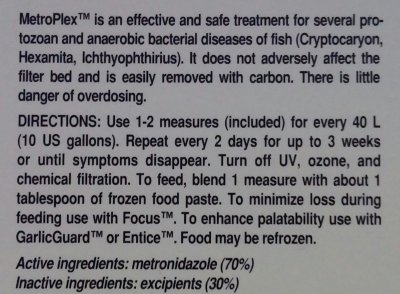Navigation
Install the app
How to install the app on iOS
Follow along with the video below to see how to install our site as a web app on your home screen.
Note: This feature may not be available in some browsers.
More options
You are using an out of date browser. It may not display this or other websites correctly.
You should upgrade or use an alternative browser.
You should upgrade or use an alternative browser.
Dinoflagellates - dinos a possible cure!? Follow along and see!
- Thread starter twilliard
- Start date
- Tagged users None
Spot on info here!We are using seachem metroplex. Lifespan is 14 days and majority of it is removed via mechanical filtration.
I took a sample today of a mat in our frag tank. To my surprise there was not a single dinoflagellate cell in the sample just spirulina
Seems to be 14 days is the max for cell survival.
Just adding this because it worked for me , I have three tanks and was rearranging rock from one tank to another and had them in all three tank just did three day black out on all three they are completely gone
Here is a good question about the 3 days of black out.
Do people actually know what happens to the individual cells during this time?
During dark hours do people know they actually become water born?
Not to discredit blackouts, but from my research into the cells a blackout doesn't kill them. They disperse.
I agree you can reduce population in that method but does a person extract every cell within the water column?
These guys are smart
Do people actually know what happens to the individual cells during this time?
During dark hours do people know they actually become water born?
Not to discredit blackouts, but from my research into the cells a blackout doesn't kill them. They disperse.
I agree you can reduce population in that method but does a person extract every cell within the water column?
These guys are smart
Thank you team sippy!I'm in for the ride...
We are using seachem metroplex. Lifespan is 14 days and majority of it is removed via mechanical filtration.
Yes however my question is since zooanthelle and dinoflagellates are basically one in the same. Metro damages or sterilizes Dinos. Even though it is removed, the damage is done to the Dinos. Does it affect the zooanthelle long term?
I'm not bucking this idea as it is great for the hobby. But are the side effects only a pretty clean Dino free tank or is does it mean slow or stalled growth on sps or other coral?
This is what this work is aboutYes however my question is since zooanthelle and dinoflagellates are basically one in the same. Metro damages or sterilizes Dinos. Even though it is removed, the damage is done to the Dinos. Does it affect the zooanthelle long term?
I'm not bucking this idea as it is great for the hobby. But are the side effects only a pretty clean Dino free tank or is does it mean slow or stalled growth on sps or other coral?
This is one of the questions I seek an answer to.
I observe the corals multiple times a day.
They great thing about coral is they let you know when they are stressed. One of those mechanisms is the expulsion of zooanthelle.
Now if the zooanthelle is harmed through DNA there would be no reproduction of cells stressing the coral.
On a biological standpoint I have not witnessed these behaviors in my corals as of day 15.
- Joined
- Dec 22, 2015
- Messages
- 796
- Reaction score
- 678
Yes however my question is since zooanthelle and dinoflagellates are basically one in the same. Metro damages or sterilizes Dinos. Even though it is removed, the damage is done to the Dinos. Does it affect the zooanthelle long term?
I'm not bucking this idea as it is great for the hobby. But are the side effects only a pretty clean Dino free tank or is does it mean slow or stalled growth on sps or other coral?
That's a great question from what I have been researching with @twilliard as far as I can tell the coral itself actually protecting the zooanthelle through its slime coat as will as its own flesh.
Further I have been treating my tanks with metronidazole since I have been in the hobby. My coral show no signs of RTN or STN in fact my montipora in the tanks actually grow very rapidly. Along with my Duncan's and frogs pawn and hammer corals.
Big T I'm about to give this a try I found my little gram scale how many grams for my 75g per day?
So you are saying 1g per 10g ? @cowboy
- Joined
- Sep 8, 2015
- Messages
- 6,514
- Reaction score
- 6,511
- Joined
- Jul 28, 2015
- Messages
- 2,752
- Reaction score
- 1,940
i doubt metro would harm the symbiodinium housed by the corals.
otherwise, everytime you bombed your tank with peroxide you would have a bleached deadland of coral.
the coral animal is housing it.
otherwise, everytime you bombed your tank with peroxide you would have a bleached deadland of coral.
the coral animal is housing it.
Similar threads
- Replies
- 4
- Views
- 105
- Replies
- 9
- Views
- 523
- Replies
- 6
- Views
- 378
- Replies
- 2
- Views
- 345



















